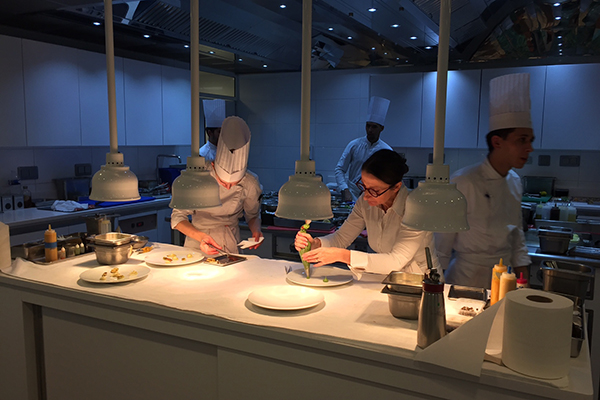Call it naïve thinking but maybe it’s only a matter of time before the reality of rampant sexism in every industry is made public. In the wake of the #MeToo movement and through the efforts of countless activists, stories of sexual harassment in the workplace are slowly ceasing to be open secrets and are starting to be recognized for what they truly are.
Some concrete steps are actually being taken to address them. Progress is slow and painful—especially for victimized women—but it’s progress nonetheless.
An industry known to be (and tacitly accepted as) male-dominated, the food and beverage world has received its share of criticism relating to sexism. Influential restaurateurs like Mario Batali and Ken Friedman have left their businesses after being accused of harassment by dozens of former female employees. So now the press are paying attention to women.
A culinary documentary that has received a lot of attention lately is Maya Gallus’ “The Heat: A Kitchen (R)evolution.” The film, which recently had its world premiere on Apr. 28, 2018 at Toronto’s Hot Docs festival, features a cast of talented chefs: Anne-Sophie Pic of three-Michelin starred Maison Pic in France, Anita Lo of Annisa in NYC, Amanda Cohen of Dirty Candy, British chef Angela Hartnett, Canadian chef Charlotte Langley, Victoria Blamey (formerly of Chumley’s) and the writer and chef Ivy Knight.
“The Heat” is a film that brings to light the harsh realities of sexism in the industry and what it’s like to be a chef burdened by your gender. For instance, the movie talks about how the label “female chef” is a disservice to women: “There’s a saying that ‘men cook for glory and women cook for love. And if we do, it’s because of how we were raised, and of that social construct. But as a chef, you really want to be judged on your work. Gender really has nothing to do with it,” says Lo.
Blamey also talks about the hardships of pursuing a professional career in the kitchen: That it’s this hard to secure a place in the culinary world despite the fact that “women have been cooking forever,” is very ironic.
It’s true. Successful male chefs always talk about how their mothers or grandmothers introduced them to cooking. “It’s not always you recall your dad cooking for you,” says Blamey.
“There’s a saying that ‘men cook for glory and women cook for love. And if we do, it’s because of how we were raised, and of that social construct. But as a chef, you really want to be judged on your work. Gender really has nothing to do with it,” says Anita Lo.
So how come women’s pursuit of a professional career in the kitchen is not taken seriously?
The film also sheds light on how food media would rather glorify the “drugs, rock and roll, and bad behavior” of male-run kitchens as opposed to a female chef who treats her employees fairly. Cohen, one of the chefs featured in the film, puts it best when she says: “A female chef who treats her employees well and sends staff home early isn’t sexy. No one is going to want to write about that.”
It’s disturbing to realize that these women are only getting considerable attention for what are, in reality, tragic reasons. In a way, it’s the women’s victimization that the food media are excited about, not their talents.
Male chefs are dominating popular shows like “Ugly Delicious” and “Chef’s Table” (the latest season of which features four pastry chefs—only one of which is a woman). Meanwhile, women are still being asked by journalists: So what’s it like being a female chef?
But the fact that things are this way shouldn’t have to relegate the relevance and importance of films like “The Heat.”
“My intention with this film is that it really does speak to our times, whether it’s women in male-dominated kitchens, women in the film, women in engineering, women in tech,” says Gallus.
Yes, “The Heat” is a documentary about the ugly truths of a highly sexist industry (which, really, should be recognized at this point) but it’s also a celebration of the talents of seven chefs who are redefining it.
They just happen to be women. “It’s not supposed to be radical, but it is,” says Gallus.





